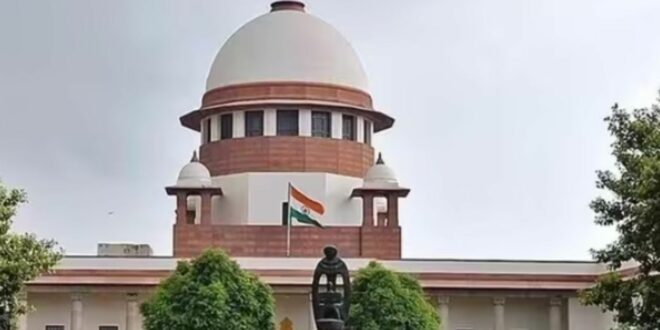New Delhi: There is a debate going on in the country these days on the Heritage Act. After Congress leader Sam Pitroda’s statement about inheritance tax in America, BJP is continuously attacking Congress. Whereas Congress has distanced itself by saying that this is his personal statement. However, BJP is accusing Congress of doing appeasement politics. Regarding the statement regarding inheritance tax, BJP says that a plan is being made to distribute the personal property of the people to the minorities. Meanwhile the question is whether 39(B) (39(B)?) gives the government the right to take possession of your personal property. The Supreme Court has already reserved its decision after hearing this matter.
Let us tell you that in the property dispute case filed in 1992, the Supreme Court has felt the need to re-interpret Article 39 (B) of the Constitution. Directive principles of state policy are generally unenforceable by court law. One member of the Constituent Assembly even described the entire portion as a ‘dustbin of emotions’. But Article 39(B) is different. This is underpinned by Article 31C, which says that a law made by Parliament in furtherance of Article 39(B) is not invalid even if it violates fundamental rights such as equality and freedom of trade. Let us tell you that in this case the relationship between the two provisions is also an issue before the Supreme Court.
“Wealth inequality in India greater than ever before”
A recent study by the World Inequality Database states that wealth inequality in India is now higher than during British rule. Regarding this, Parliament could potentially implement a ‘wealth tax’, where people with a certain net worth would have to pay 2% tax on their wealth. Because it violates fundamental rights like equality, life and personal liberty and freedom of trade, it would be futile to challenge this law, as Article 39(B) is supported by Article 31C.
Gandhian view of Article 39(B)
During the hearing on this case, CJI Chandrachud had said that Article 39(B) cannot be interpreted in a completely communist or socialist sense. He saw Gandhian thinking in this provision. That is why it is expected that the Supreme Court will interpret Article 39(B) more closely. Personal property cannot be completely abandoned, but certain types of personal property can be declared in trust.
What is the opinion of the Supreme Court on private property?
Can private properties be considered as material resources of the community under Article 39(b) of the Constitution? A nine-member Constitution bench headed by the CJI heard the petitions filed regarding whether the state government can take possession of it in public interest. During the last day of hearing, Chief Justice (CJI) DY Chandrachud asked, giving an example. If a semiconductor chips manufacturer outside India is asked to set up a unit in the country but is later told that it is a physical resource of the community, and it will be taken away, then who will invest in the country?
The top court said, “So the question is whether a person invests, builds a factory and starts production. It cannot be said tomorrow that it will be taken away for the purpose of distributing it to the workers. At the same time The Constitution bench of 9 judges completed the hearing of this case and reserved its decision.
What is America’s inheritance law?
Two types of property taxes are imposed in America. One is wealth tax and the other is inheritance tax. Property tax is imposed in 12 states of America. Only six states impose inheritance tax. Estate tax is also known as ‘death tax’. This is a federal law. It is imposed on the transfer of a person’s assets after his death. This tax is believed to be owed by the estates, not the beneficiaries. Property tax can be between 18 to 40 percent.
On the contrary, inheritance tax is levied on the person who is inheriting money, property or any other wealth. It is imposed on the transfer of a person’s assets on his death. It is payable in the state in which he is located, even if the beneficiary is residing in another state. The beneficiary will have to pay this tax
 Indian Thought Latest News & Views
Indian Thought Latest News & Views



